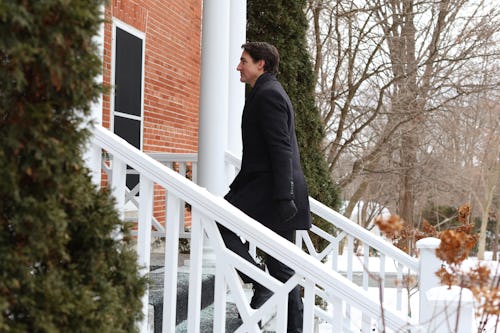
In a stunning announcement that has sent shockwaves through the political landscape, Justin Trudeau, the Prime Minister of Canada, has declared his intention to resign. After nearly a decade at the helm, Trudeau's decision comes amid a backdrop of waning popularity and internal party strife. This moment marks not just a pivotal turn in Canadian politics but also raises questions about the future direction of the Liberal Party and Canada's governance.
The Context Behind the Resignation
Trudeau's resignation follows a series of political challenges that have plagued his administration. His approval ratings have been slipping for some time, fueled by dissatisfaction over various issues ranging from economic management to environmental policies. The recent specter of U.S. trade tariffs has further compounded these challenges, creating uncertainty for Canadian businesses and citizens alike.
Adding fuel to the fire was the abrupt departure of Chrystia Freeland, who served as Deputy Prime Minister and Finance Minister. Freeland was seen as one of Trudeau’s closest allies and her resignation raised eyebrows across the political spectrum. Many interpreted her exit as a sign that internal battles within the Liberal Party were escalating, prompting calls for new leadership before an upcoming election.
Acknowledging Internal Struggles
At a press conference announcing his resignation, Trudeau stated that he no longer felt he could be “the best option” for his party or for Canada as it heads into what promises to be a contentious election year. This admission is significant; it reflects not only his awareness of declining support but also an acknowledgment that leadership in times of crisis requires more than just tenure — it requires trust and unity.
Trudeau’s leadership style has often been characterized by charisma and progressive ideals, but recent events suggest that this approach may have lost its luster among voters who are increasingly looking for accountability and effective governance. The internal battles he referenced seem to indicate deeper fractures within his party that could hinder its ability to present a united front against opposition parties.
What Lies Ahead for Canada?
As Trudeau prepares to step down as both party leader and prime minister after his successor is chosen, questions loom about who will take up the mantle. Potential candidates within the party are already being discussed in political circles — each bringing their own vision and strategy for navigating Canada’s complex socio-political landscape.
With elections on the horizon, this transition presents both challenges and opportunities for Canada's future direction. Will Trudeau's successor be able to rally support from disenchanted voters? Can they effectively address pressing issues like climate change, healthcare reform, and economic stability while also managing relations with an unpredictable neighbor like the United States?







